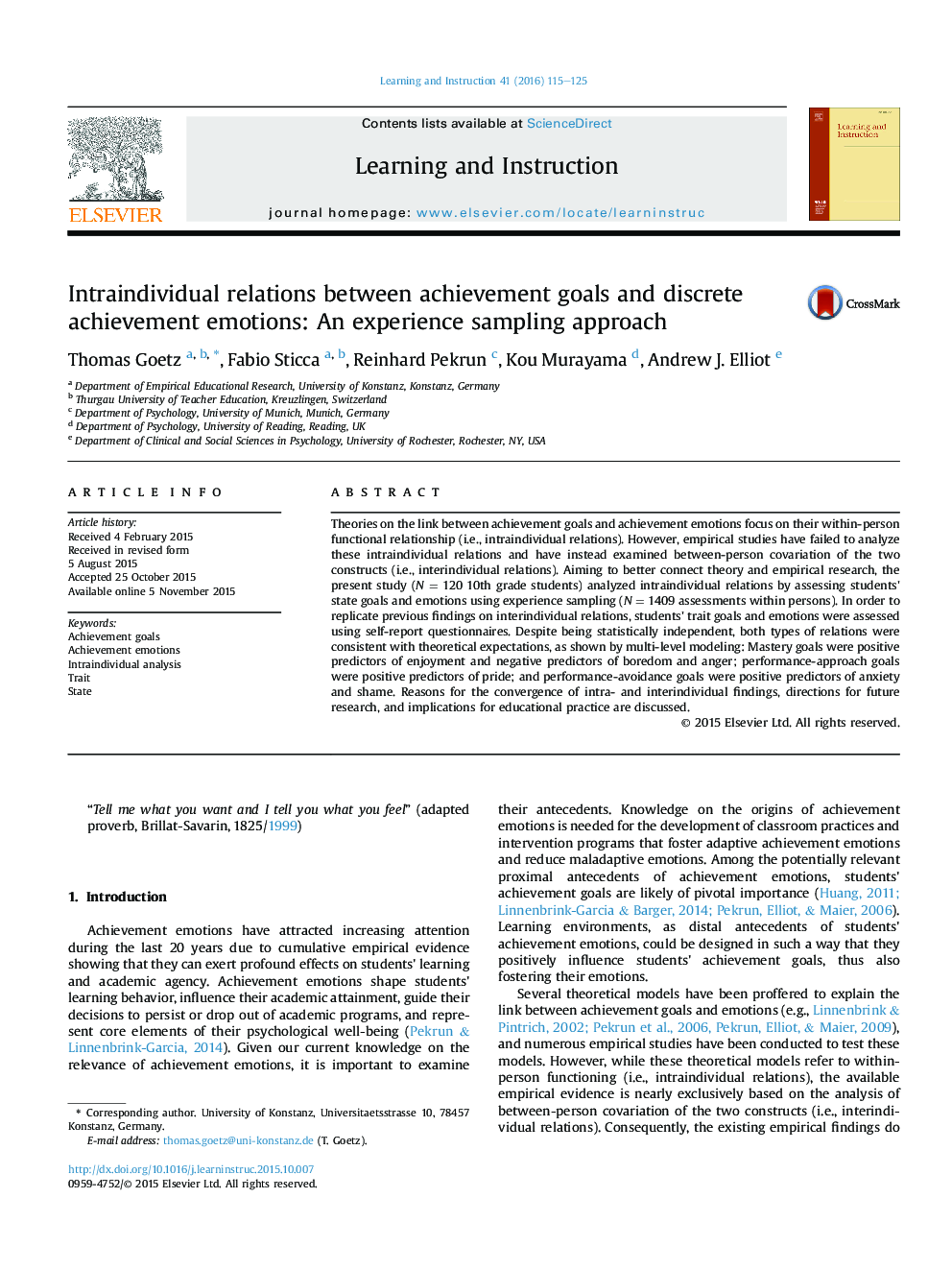| Article ID | Journal | Published Year | Pages | File Type |
|---|---|---|---|---|
| 365494 | Learning and Instruction | 2016 | 11 Pages |
•Theories in the behavioral sciences commonly focus on intraindividual functioning.•However, empirical studies have typically focused on interindividual variation.•We analyzed both intra- and interindividual relations between achievement goals and emotions.•The intraindividual relations were similar to the interindividual relations.•Both intra- and interindividual relations were consistent with theoretical expectations.
Theories on the link between achievement goals and achievement emotions focus on their within-person functional relationship (i.e., intraindividual relations). However, empirical studies have failed to analyze these intraindividual relations and have instead examined between-person covariation of the two constructs (i.e., interindividual relations). Aiming to better connect theory and empirical research, the present study (N = 120 10th grade students) analyzed intraindividual relations by assessing students' state goals and emotions using experience sampling (N = 1409 assessments within persons). In order to replicate previous findings on interindividual relations, students' trait goals and emotions were assessed using self-report questionnaires. Despite being statistically independent, both types of relations were consistent with theoretical expectations, as shown by multi-level modeling: Mastery goals were positive predictors of enjoyment and negative predictors of boredom and anger; performance-approach goals were positive predictors of pride; and performance-avoidance goals were positive predictors of anxiety and shame. Reasons for the convergence of intra- and interindividual findings, directions for future research, and implications for educational practice are discussed.
